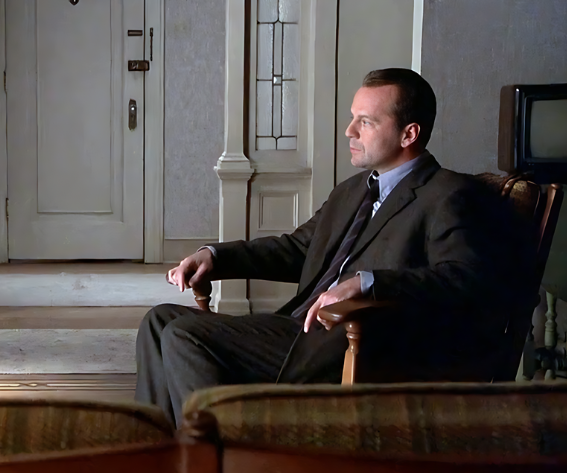Suspense films thrive on one central promise: that things are never quite as they seem. Directors build tension not just through ominous music, dim lighting, or the carefully timed silence before a reveal, but by weaving narratives where the ending can flip the entire experience upside down. In fact, some of the most celebrated films in cinematic history are remembered less for their opening act and more for that final shocking twist—the moment when the truth emerges and audiences are left stunned, eager to rewatch with fresh eyes.
This concept of a “game of deception” in film mirrors the unpredictability found in everyday life. Just like the best casino games, suspense cinema thrives on risk, chance, and the thrill of the unknown. You enter with certain expectations, you play along with the rules as you understand them, but the true outcome often surprises you. This interplay of strategy, luck, and revelation makes both activities—watching a gripping suspense movie and trying your hand at a game of chance—so compelling.
A Parallel in Unexpected Places
Suspense on screen isn’t the only place where people chase that feeling of tension and release. Even outside the cinema, the thrill of waiting for an outcome is a familiar human experience. Take online platforms such as Betway, where the spin of a wheel or the flip of a card can echo the same sense of anticipation as the build-up to a movie’s climactic twist. It’s that shared psychology of uncertainty—never quite knowing what comes next—that makes both suspense films and games of chance so irresistibly engaging.
Classic Twists That Shaped Cinema
One of the earliest and most celebrated examples of the twist ending comes from Alfred Hitchcock, the master of suspense. Psycho (1960) shocked audiences with the revelation of Norman Bates’ true identity and the role his “mother” played in the story. Hitchcock’s brilliance wasn’t just in the horror elements, but in pulling the rug out from under viewers who thought they understood the narrative. That final twist became the story and ensured the film’s place in cinematic history.
Fast forward a few decades, and directors continued to explore how a last-minute shift in perception could redefine a film. M. Night Shyamalan built an entire career around this formula, with The Sixth Sense (1999) serving as the ultimate example. The chilling reveal that Dr. Malcolm Crowe was dead the entire time didn’t just shock audiences—it invited them to revisit the movie from the beginning, piecing together the subtle clues that suddenly made sense. Here, the twist wasn’t a gimmick, but a structural device that elevated the entire narrative.
Twists as a Narrative Device
The beauty of a twist ending lies in its ability to transform a film’s meaning. A story that seemed to be about one thing suddenly becomes about another. In Fight Club (1999), the revelation that Tyler Durden is the narrator’s split personality reframes the entire story from a critique of consumerism to an exploration of identity and mental health. Similarly, Oldboy (2003), the South Korean masterpiece by Park Chan-wook, delivers a shocking revelation about the protagonist’s past that is as emotionally devastating as it is narratively unexpected.
These twists succeed because they are earned. The groundwork is laid throughout the film, and while the audience may not see it coming, the revelation feels logical in retrospect. This balance between surprise and believability is the key to why such endings resonate long after the credits roll.
Modern Approaches to Suspense Endings
Contemporary filmmakers have also experimented with twists, though audiences today are more aware of the trope. Movies like Gone Girl (2014) by David Fincher use twists not only as narrative shocks but also as commentary on media, relationships, and societal expectations. The mid-film revelation that Amy is alive and manipulating events is not just surprising—it reshapes the second half of the film into an entirely different experience.
Likewise, Jordan Peele’s Get Out (2017) employs its twist not purely for shock value, but to expose deeper social commentary. The revelation of the “sunken place” and the grotesque motives of the Armitage family turn the film into both a thriller and a biting cultural critique. Here, the twist ending is less about tricking the audience and more about amplifying the themes.
Why We Crave the Twist
At the core, twist endings in suspense cinema deliver a payoff that feels both shocking and satisfying. They mirror the unpredictability of life, where not everything is as it seems and certainty is fleeting. Just as players sit on the edge of their seats during a high-stakes game of poker or spin of the wheel, filmgoers relish the edge-of-seat anticipation of discovering the truth behind the story.
The rise of streaming platforms has also played a role in how we consume suspense. Audiences binge entire series, searching for the twist, theorizing online, and dissecting every frame. The thrill of being surprised has become a communal event, sparking conversation and debate. And in a way, that social connection only makes the twists more powerful—because it’s not just about the reveal, but about sharing the shock with others.
Conclusion
When the twist becomes the story, suspense cinema reaches its peak. From Hitchcock’s psychological mastery to Shyamalan’s mind-bending reveals, from Fincher’s layered mysteries to Peele’s cultural thrillers, these films remind us why we love suspense: the tension, the risk, the anticipation, and the final payoff. It is in those unpredictable final moments—when everything we thought we knew changes—that suspense cinema cements its lasting legacy.









Leave a reply